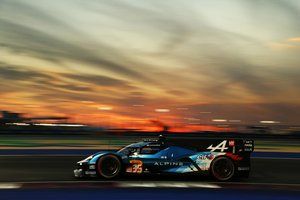Formula 2 and 3 to pioneer sustainable fuels from 2023 season
Formula 2 and Formula 3 are set to partner with Aramco to pioneer sustainable fuels from 2023 to help reach Formula 1's overall sustainability targets for 2026 and beyond.

Photo by: Red Bull Content Pool
Both championships will run with 55-percent sustainable fuel next season, with the percentage increasing incrementally to 100 percent by the start of the 2027 season.
The agreement forms part of F1 and the FIA’s wider sustainability strategy, in which the series anticipates it will reach its target of becoming net zero carbon by 2030.
All FIA championships will be required to power their cars with 100% sustainable fuels from 2026, with the fuels set to be introduced in F1 alongside the next-generation hybrid power units.
F1 president Stefano Domenicali said: “Aramco is a leader in this space and, subject to the approval of the FIA World Motor Sport Council, will deliver our sustainable fuel ambitions, working closely with our colleagues in F2 and F3, who not only bring through the drivers of the future but offer a superb testing ground for the latest engineering in motorsport.
“In 2026, F1 will move to zero-emission sustainable fuel that offers a game-changing solution for the automotive sector and beyond.
“With the support of Aramco and all our manufacturers, we can accelerate the sector’s move to net zero.”
The introduction of sustainable fuels will be on a 'drop-in' basis, where the composition of the fuel can be accepted by the current powertrains with minimal changes.
PLUS: How F1's future fuels can shape the automotive sector
Bruno Michel, CEO of F2 and F3, said: “Sustainability is a top priority in today’s world, and we have been working on making our sport more sustainable for some time now.
“The goal to switch to synthetic fuel can only be achieved through the partnership with a company of the scale of Aramco, which is determined to produce advanced sustainable fuel in the near future.
“It’s easier to implement such a significant change in F2 and in F3, as they are single-make categories with single suppliers.
“We’re very happy to undertake an innovation role – as we did last season with the introduction of the 18-inch tyres now used in F1 – and take the first steps towards synthetic sustainable fuel.”
The World Rally Championship became the first FIA championship to use 100-percent sustainable fuels in 2022, with Rally1 cars also combining a 1.6-litre petrol engine and an electric motor in a bid to reduce the sport’s carbon footprint.
The World Touring Car Cup currently uses 15-percent biofuel as part of its progress towards fully sustainable fuels, with both championships using P1 Racing Fuels.
PLUS: The inconvenient questions posed by Vettel’s Williams run
Sebastian Vettel also drove Nigel Mansell’s 1992 Formula 1 championship-winning Williams at the British Grand Prix in July using carbon-neutral fuels.
Be part of the Autosport community
Join the conversationShare Or Save This Story
Subscribe and access Autosport.com with your ad-blocker.
From Formula 1 to MotoGP we report straight from the paddock because we love our sport, just like you. In order to keep delivering our expert journalism, our website uses advertising. Still, we want to give you the opportunity to enjoy an ad-free and tracker-free website and to continue using your adblocker.















Top Comments